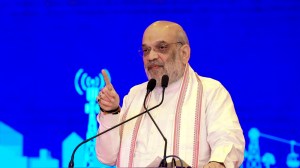Make it tougher for lawbreakers to be lawmakers: SC to EC
In a major boost to electoral reforms, the Supreme Court today made it compulsory for candidates contesting parliamentary or assembly polls ...

In a major boost to electoral reforms, the Supreme Court today made it compulsory for candidates contesting parliamentary or assembly polls to disclose to the electorate their criminal antecedents, if any, and their financial and educational background.
A three-judge bench comprising Justice M B Shah, Justice B P Singh and Justice H K Sema, directed the Election Commission to pass necessary orders in two months so that the candidates are required to give details on five counts:
• The candidate’s conviction/acquittal/discharge of any criminal offence in the past and whether the punishment was imprisonment or fine
• Whether, in the six months before nominations were filed, the candidate was accused in any pending case, of any offence punishable with imprisonment for two years or more
• The candidate’s assets and those of his/her spouse and dependents
• Liabilities, if any, particularly whether there are any overdues of any public FIs
• The candidate’s educational qualifications.
The apex court made these radical changes while disposing of an appeal filed by the Centre challenging the sweeping directions given by the Delhi High Court on a petition filed by the Centre challenging the sweeping directions given by the Delhi High Court on a petition filed by the Association for Democratic Reforms.
The purpose of requiring the candidate to make all such disclosures is to help the voter make an informed choice. ‘‘The little man may think over before making his choice of electing law breakers as law makers,’’ the court said.
The candidates will be required to furnish those details in an affidavit at the time of filing their nominations. The candidates who fail to do so are liable to be disqualified by the Election Commission, which has a ‘‘plenary power’’ under Article 324 of the Constitution to hold free and fair elections.
Photos





- 01
- 02
- 03
- 04
- 05


























